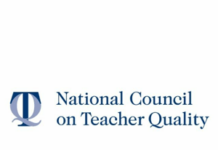 A new report has analyzed the current state of gender and racial equity in the professional field of educational measurement. The “State of the Field” report is a collaborative initiative between the American Educational Research Association, the National Council on Measurement in Education, and Women in Measurement.
A new report has analyzed the current state of gender and racial equity in the professional field of educational measurement. The “State of the Field” report is a collaborative initiative between the American Educational Research Association, the National Council on Measurement in Education, and Women in Measurement.
For their study, the research team asked a sample of over 1,200 professionals in the educational measurement field about their employment factors, including their salaries and their specific job titles. The survey found that White men had the highest median salary range of $130,000 to $149,999, compared to White women, men of color, and women of color, who all had a median range of $90,000 to $109,999. In the academic sector, White men were the most likely to hold senior ranking faculty positions such as full professor. Women of color were the least likely to be full professors, and no women of color in the study’s sample held emeritus or distinguished professor titles. Similar inequities were seen in industries outside of academia. About 9 percent of White male respondents were chief executive officers, compared to 3 percent of White women and 1 percent of women of color. Out of all survey respondents, no men of color held the title of chief executive officer.
The survey also asked participants about their perceptions of diversity, equity, and inclusion in the workplace. Overall, men of all backgrounds were more likely than women to agree that their workplace created an equitable environment. Women of color were the most likely group to state they felt unsupported by their employers, and consistently reported the lowest agreement rates surrounding all survey questions regarding equity, inclusion, and anti-discrimination in the workplace. Additionally, women of color were more likely to state they were uncomfortable discussing discrimination issues at work, and that their workplace’s responses to discrimination were inadequate. When asked about specific reasoning for the discrimination they experience, men and women of color were most likely to report race-related discrimination, as opposed to White respondents who were most likely to report experiencing discrimination due to their gender.
The authors of the report stress their findings reveal an urgent need for educational measurement organizations and academic leaders to prioritize diversity and inclusion and mitigate the negative effects of workplace discrimination. They suggest that professional leaders can take action by making public pledges to increase diversity, adjust salaries to address gender and racial pay gaps, invest in anti-bias trainings and support, improve communications regarding diversity and anti-discrimination policies, and continually gather feedback from their employees to assess progress and needed areas of improvement.











